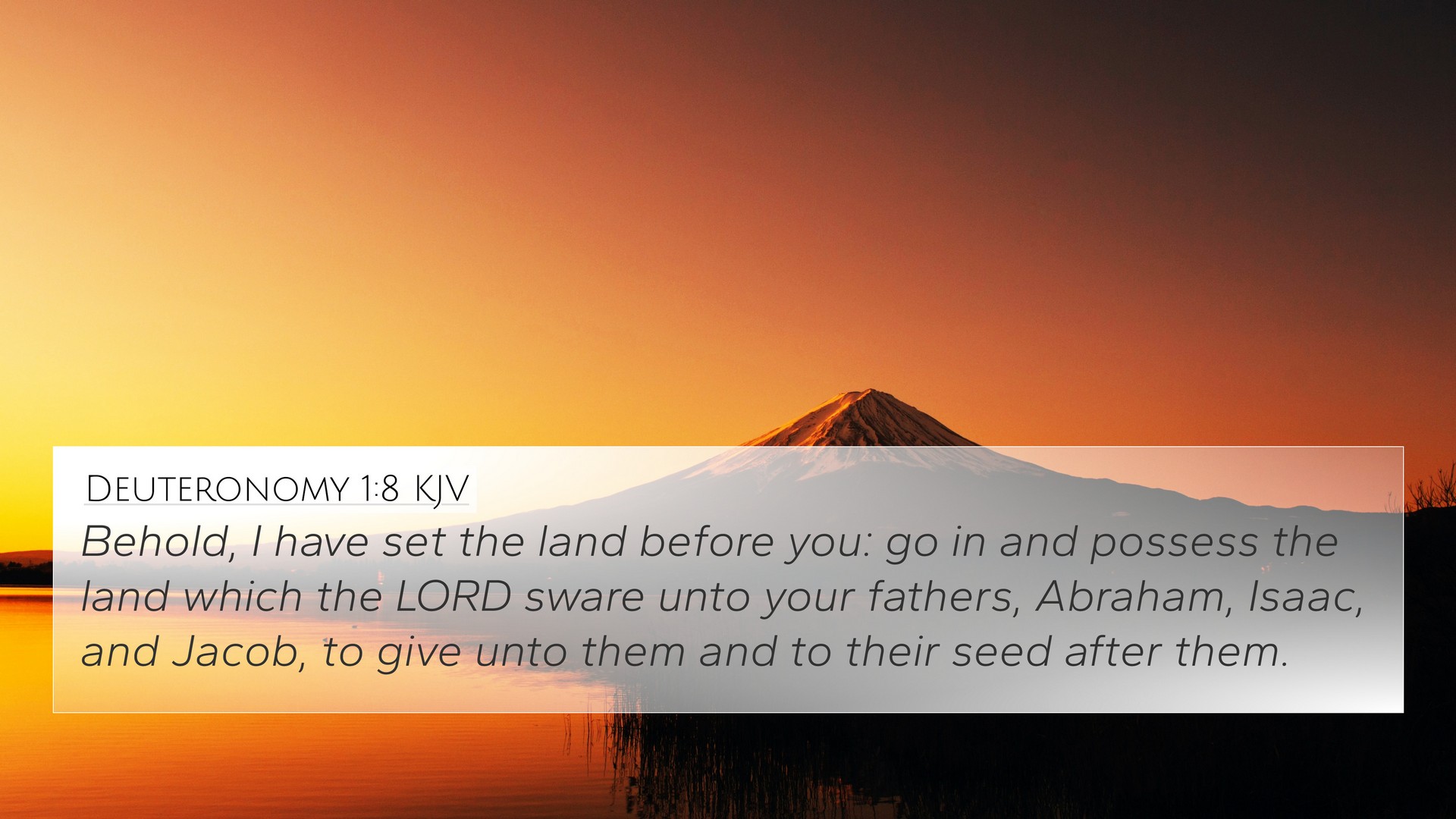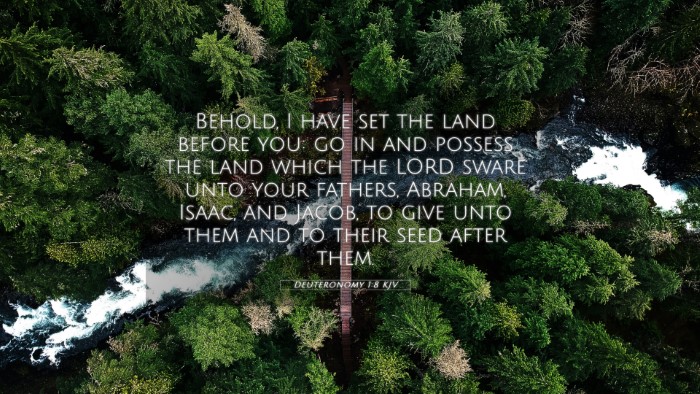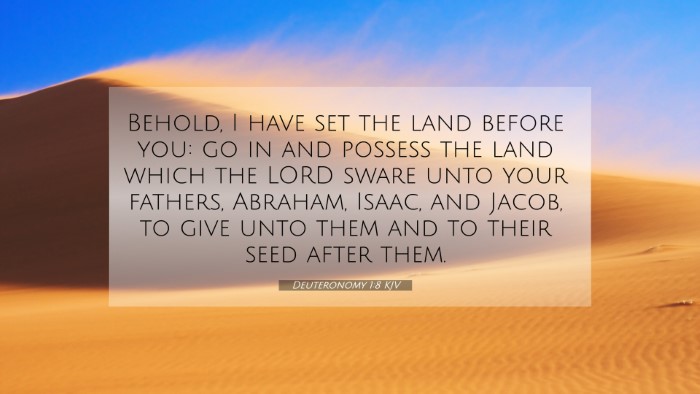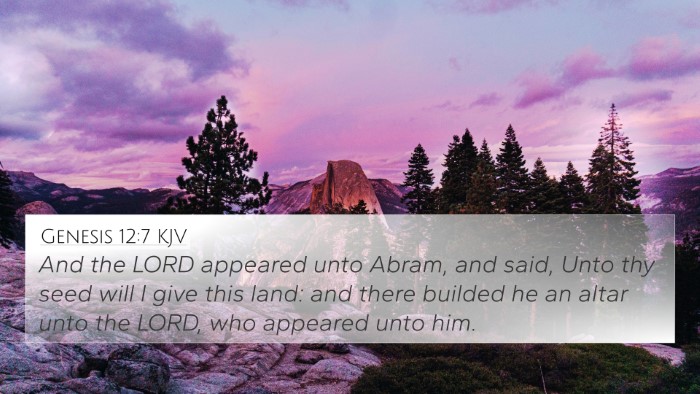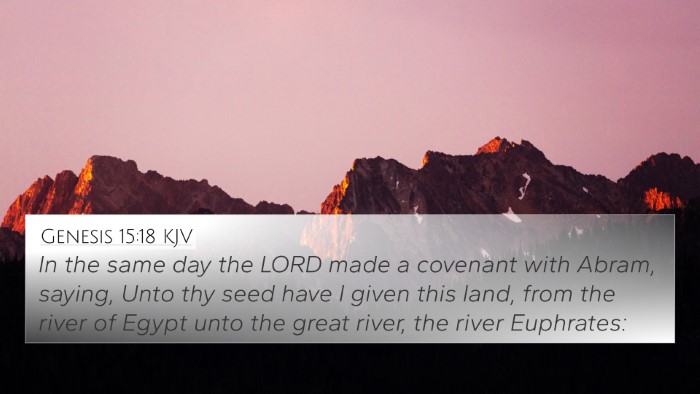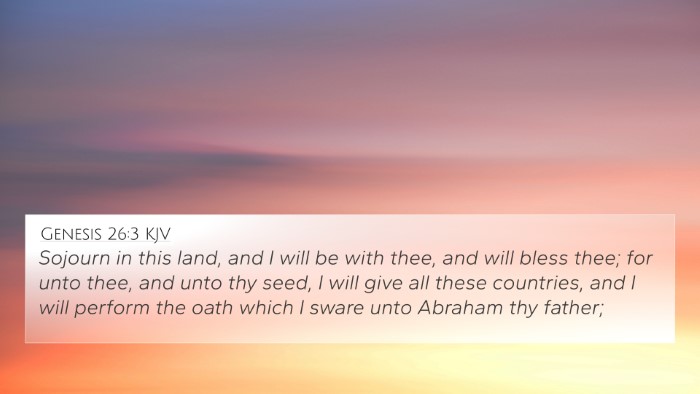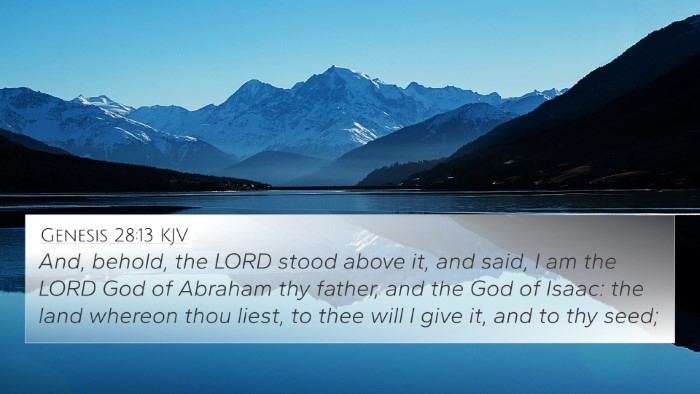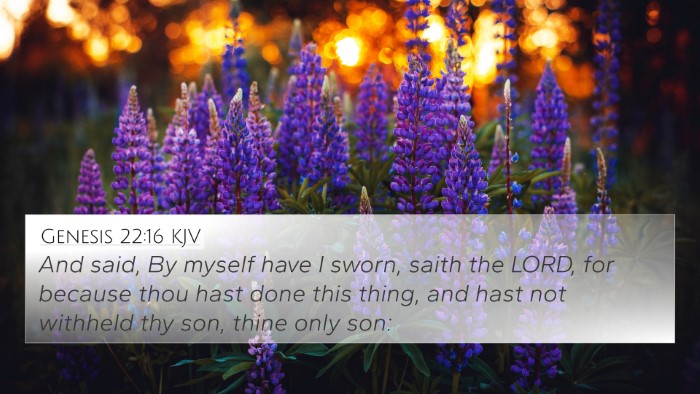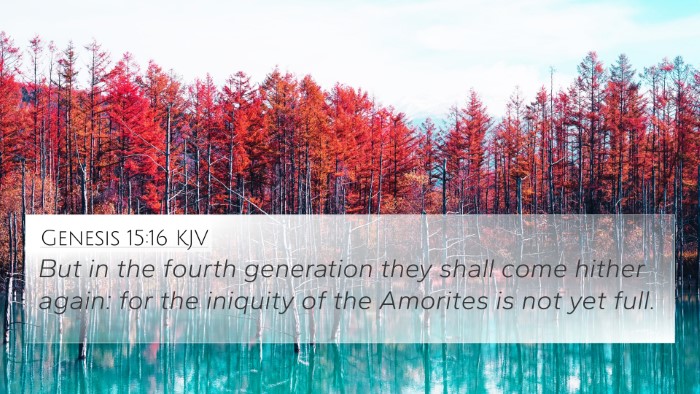Understanding Deuteronomy 1:8
Bible Verse: “Behold, I have set the land before you: go in and possess the land which the Lord swore unto your fathers, Abraham, Isaac, and Jacob, to give unto them and to their seed after them.”
Summary of Meaning
Deuteronomy 1:8 serves as a pivotal moment in biblical history where God commands the Israelites to take possession of the Promised Land. This command is significant as it illustrates God's faithfulness to His promises made to the patriarchs Abraham, Isaac, and Jacob. The verse emphasizes themes of divine promise, obedience, and the concept of inheritance within God's covenantal relationship with His people.
Main Themes
- Divine Covenant: The promise made by God to the patriarchs is reaffirmed, highlighting the continuity of God’s plan.
- Act of Possession: God’s directive to possess the land signifies active participation in fulfilling God’s promise.
- Faithfulness of God: The verse reflects God’s unwavering commitment to His promise across generations.
- God’s Guidance: The command implies the necessity of seeking God’s direction in undertaking significant ventures.
Commentary Insights
Below are insights derived from public domain commentaries:
- Matthew Henry's Commentary: He emphasizes the importance of God setting the land before the people, highlighting that it was a precursor to their action. The command is seen both as an encouragement and a challenge, urging the Israelites to step forward in faith.
- Albert Barnes' Notes: Barnes points out that the land was not merely physical territory but a divine gift, symbolizing spiritual promises. He connects the act of possession with understanding one's spiritual inheritance in Christ.
- Adam Clarke’s Commentary: Clarke elaborates on the historical context, discussing how this land was tied to the legacy of the patriarchs. He underscores the responsibility that accompanies such a significant blessing.
Cross-References
The following verses relate closely to Deuteronomy 1:8, deepening the understanding of its themes:
- Genesis 12:1-3: The initial promise to Abraham, establishing a foundation for the covenant.
- Genesis 15:18-21: God's formal covenant with Abraham, detailing the land that belongs to his descendants.
- Exodus 23:31: God confirming the borders of the land promised to Israel.
- Numbers 33:53-54: Instructions on how to possess the land and what to do with it.
- Joshua 1:2-3: The transition of leadership to Joshua to lead Israel into the land.
- Psalm 105:8-11: A reflection on God's faithfulness to the covenant and His promise to give the land.
- Hebrews 11:8-10: This passage references the faith Abraham had in the promise of land and how it serves as a model for faith in God’s promises.
- Acts 7:5: Stephen recounts the promise made to Abraham, emphasizing the significance of his faith and the delay before the inheritors possessed the land.
- Romans 4:13: Paul explains that the promise of land pertains to Abraham’s faith and the later spiritual implications for believers.
- Revelation 21:1: The ultimate fulfillment of God’s promise through a new creation, where the faithful will reside eternally.
Tools and Resources for Cross-Referencing
For deeper study, consider utilizing the following tools:
- Bible Concordance: A valuable resource for finding keywords and their related scriptures.
- Bible Cross-Reference Guide: Guides that list verses that connect thematically or contextually.
- Cross-Reference Bible Study Methods: Various methods and approaches to effectively analyze scriptures in relation to each other.
- Comprehensive Bible Cross-Reference Materials: Books or software that compile extensive cross-references for thorough study.
Conclusion
Deuteronomy 1:8 not only serves as a historical command but also as a spiritual exhortation to understand and embrace God’s promises. Its connections with other scriptures enhance our comprehension of God’s covenantal faithfulness, urging believers to actively seek His will and boldly step into the inheritance they have in Christ.
